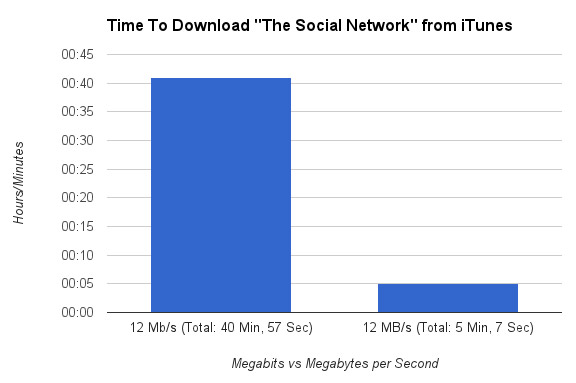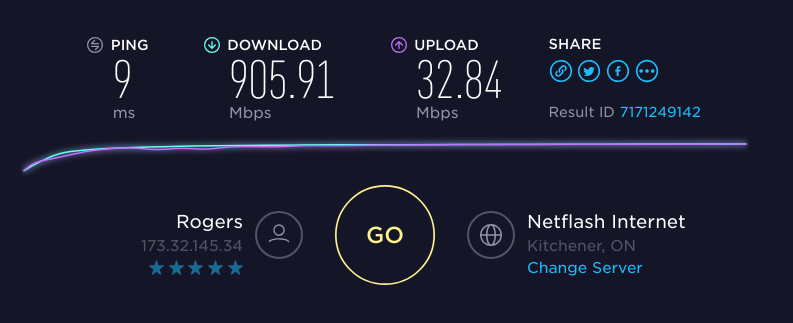Demystifying Megabits Per Second: What Consumers Required to Know
Demystifying Megabits Per Second: What Consumers Required to Know
Blog Article
Exactly How Megabits Per Second Influence Your Online Activities
The concept of megabits per second (Mbps) plays an essential duty in shaping our on the internet experiences. Greater Mbps can enhance performance and decrease interruptions, while inadequate rates may foster frustration and ineffectiveness.
Recognizing Megabits Per Second
When taking into consideration internet rate, it's important to comprehend the concept of megabits per second (Mbps), which serves as a basic dimension for data transfer rates. This metric evaluates just how much data can be transferred over an internet connection in one second, providing a clear understanding of efficiency capacities - Megabits Per Second. For context, one megabit is equivalent to one million little bits, and Mbps is frequently used to share bandwidth for various online tasks
A greater Mbps indicates a quicker internet link, allowing individuals to execute tasks such as downloading files, browsing websites, and participating in on-line video gaming more efficiently. As an example, regular surfing calls for around 1-5 Mbps, while streaming high-definition video may require 5-25 Mbps. Comprehending these needs is vital for determining the appropriate net speed required for details activities.
Furthermore, the variety of tools attached to a network can impact overall performance. Numerous users streaming, video gaming, or downloading and install concurrently can stress available transmission capacity, causing slower rates - Megabits Per Second. Examining personal online habits and needs is crucial in choosing an internet strategy that straightens with one's needs, making sure a seamless digital experience
Streaming and Buffering Issues
Streaming high-def material has actually ended up being a staple of contemporary online enjoyment, yet it is commonly accompanied by frustrating buffering concerns. These disturbances can significantly interfere with the viewing experience, leading to dissatisfaction and potential loss of audience interaction. Buffering takes place when the information transferred from the streaming service is not received quickly enough to keep a smooth playback, usually as a result of not enough net speed gauged in megabits per second (Mbps)

Furthermore, real-time streaming can be impacted by network blockage, which takes place when several gadgets share the same data transfer. Optimizing link speed and making sure appropriate Mbps is essential for a seamless streaming experience. As streaming services remain to progress, understanding the effect of Mbps on buffering issues remains vital for customers looking for continuous amusement.
Online Gaming Performance
The impact of internet rate on on-line activities prolongs past streaming, considerably influencing on the internet gaming efficiency. In affordable video gaming, reduced latency and high bandwidth are crucial for a seamless experience. A quick link lessens lag, allowing gamers to respond swiftly to in-game events, which can be the difference between triumph and loss.
Bandwidth, determined in megabits per second (Mbps), plays a vital duty in supporting several gadgets and pc gaming systems all at once. Insufficient bandwidth can result in went down connections or lowered video game top quality, adversely affecting gameplay. On-line multiplayer games need substantial Megabits Per Second data transfer, specifically during peak you can try these out gaming hours when various players are online.
Busy first-person shooters demand greater speeds to maintain responsiveness, while turn-based approach video games may operate reasonably well on lower speeds. As on-line gaming continues to evolve, with boosting graphical integrity and more complex multiplayer atmospheres, the demand for higher Mbps will just escalate.
Video Clip Conferencing High Quality
In today's digital landscape, video conferencing quality is greatly influenced by web speed, especially in terms of data transfer and latency. Premium video calls call for enough transmission capacity to transmit sound and video information flawlessly. Generally, a minimum of 1.5 Mbps upload and download speeds is recommended for typical meaning video, while high-def video clip conferencing usually requires a minimum of 3 Mbps.
Latency, or the hold-up in between sending and receiving data, likewise plays a crucial role in the user experience. Reduced latency makes certain that discussions flow naturally without awkward stops or disruptions. Preferably, latency needs to be listed below 150 milliseconds for efficient interaction. Higher latency can cause echo, lag, and disjointed communications, which can prevent collaboration and interaction during meetings.
Additionally, numerous individuals in a video clip seminar can strain readily available transmission capacity, necessitating also greater rates. Network blockage, typically brought on by synchronised tasks like streaming or downloading, can better degrade video clip high quality. Thus, for organizations counting on video conferencing for remote cooperation, comprehending the connection in between megabits per overall and second interaction high quality is essential for preserving performance and improving online communications.
Picking the Right Internet Plan
Picking a proper web strategy is vital for guaranteeing ideal performance in numerous on the internet activities, especially in settings that demand high data transfer, such as video conferencing and online pc gaming. Megabits Per Second. When thinking about an internet plan, it is vital to review both the rate and information allowance to match your details usage demands
For homes with his response several individuals involving in synchronised tasks, a strategy offering higher megabits per second (Mbps) is recommended. Typically, a minimum of 25 Mbps appropriates for basic streaming and browsing, while strategies exceeding 100 Mbps are more suitable for more extensive tasks. Additionally, consider the nature of your online tasks; video conferencing requires at the very least 1.5 Mbps upload speed, while on-line gaming may require a reduced latency however consistent connection.
It is likewise essential to assess your information cap. Unlimited information strategies can protect against throttling and interruptions, especially if hefty use is anticipated. Research study solution companies in your area, as availability and pricing can differ. By thoughtfully selecting a net plan customized to your needs, you can boost your on the internet experience, making certain smooth, uninterrupted accessibility to your favored activities.
Conclusion
In conclusion, the significance of megabits per second (Mbps) fit on the internet tasks can not be overemphasized. Greater Mbps promotes smooth streaming, minimizes buffering, improves video gaming experiences, and ensures top notch video clip conferencing. On the other hand, poor bandwidth can result in irritating disturbances and diminished efficiency throughout various jobs. An extensive understanding of private or home Mbps requirements is necessary for choosing a proper web plan that adequately sustains varied online activities and user needs.

Typically, a minimum of 25 Mbps is suitable for conventional streaming and surfing, while plans going beyond 100 Mbps are preferable for even more extensive tasks. Furthermore, think about the nature of your online activities; video conferencing needs at least 1.5 Mbps upload rate, while on the internet video gaming may require a lower latency but constant link.
Report this page